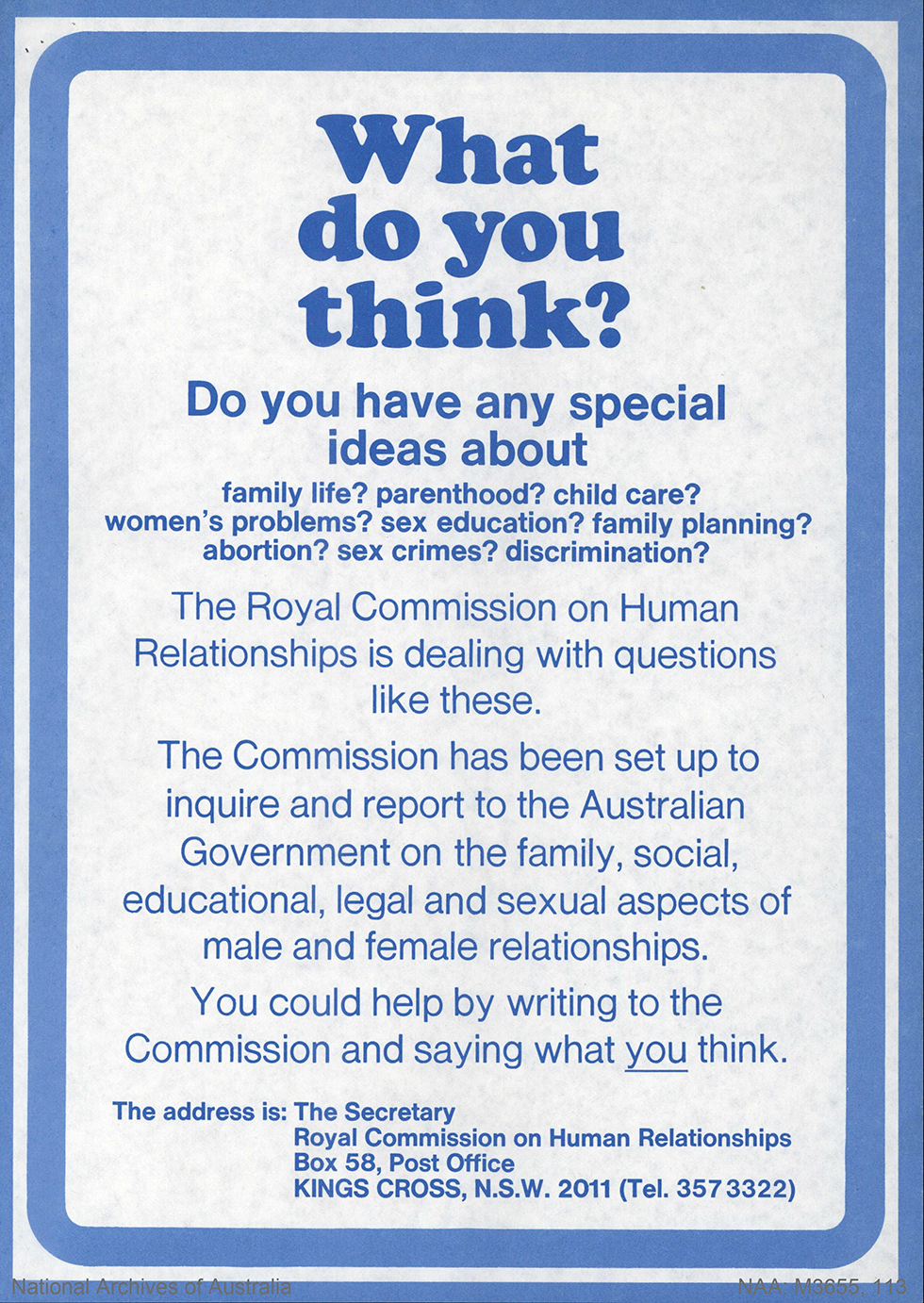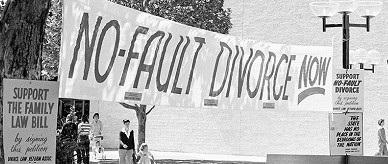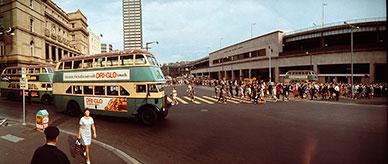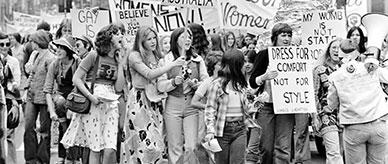


Transcript
[Pamphlet printed with blue ink on grey marbled paper. The edge of the pamphlet is surrounded by a thin blue outer-border then an inner border of a thick blue line with rounded corners.]
[Title:] What do you think?
[Subtitle:] Do you have any special ideas about
family life? parenthood? child care? women's problems? sex education? family planning? abortion? sex crimes? Discrimination?
The Royal Commission on Human Relationships is dealing with questions like these.
The Commission has been set up to inquire and report to the Australian Government on the family, social, educational, legal and sexual aspects of male and female relationships.
You could help by writing to the Commission and saying what you [word underlined] think.
[Bold:] The address is: The Secretary
Royal Commission on Human Relationships
Box 58, Post Office
KINGS CROSS, N.S.W 2011 (Tel. 357 3322)
This record is a leaflet inviting the public to contribute to the 1974 Royal Commission on Human Relationships.
A Royal Commission is a public inquiry. In Australia, Royal Commissions are the highest form of inquiry on matters of public importance. They are set up to listen. A Royal Commission hears evidence from a variety of firsthand sources. They investigate past wrongs and recommend future changes.
The Royal Commission into Human Relationships was initiated in 1974, following a failed attempt by the Whitlam government to reform abortion law. It succeeded in opening up for public discussion many previously taboo topics. This included conversations around sexuality, family violence, gender inequality, family planning and divorce.
The leaflet pictured was distributed widely – with 90,000 copies created to encourage Australians from all walks of life to have their say. Millions of ordinary Australians shared strongly held opinions and deeply personal stories with the Royal Commission.
The Royal Commission into Human Relationships has had a lasting impact on Australia. Its findings contributed to the introduction of no-fault divorce in Australia, which became law when the Family Law Act passed in 1975.
No-fault divorce removed the requirement for one partner to prove that the other did something to cause the marriage to breakdown. This made it easier to end an unhappy marriage in Australia and saw an increase in divorces nationwide.
The Royal Commission into Human Relationships opened up controversial but important conversations that continue to this day. Since the 1970s, laws concerning human relationships and domestic life have changed again to reflect changing beliefs, attitude and values in Australian society. The Australian Government legislating to recognise same-sex marriages in Australia in 2017 after a postal survey process is one significant example.
Related records
Related themes
Need help with your research?
Learn how to interpret primary sources, use our collection and more.



